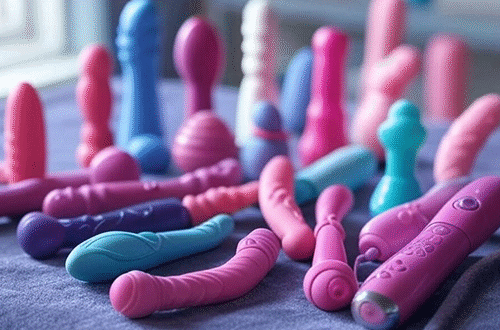
In a recent talk show appearance, a well-known actor casually mentioned his intention to gift his teenage daughter a sextoy. The internet, predictably, exploded. Some praised his openness, while others recoiled in discomfort. The backlash revealed something deeper than just disagreement—it exposed the persistent anxiety many people feel when sex enters the conversation, especially in the context of parenting.
《The Vibrator: From Medical Marvel to Cultural Icon》
🧠 The Age Debate: 16 or 18?
When is it “appropriate” to talk about sextoys with your child? Opinions vary widely. Some argue that 16 is a reasonable age to begin conversations about sexual wellness, especially as many teens are already exploring their bodies and identities. Others insist that 18—the legal age of adulthood—is the only acceptable threshold.
This divide isn’t just about numbers. It’s about values, culture, and the tension between protection and autonomy. In Western societies, where sex education is often inconsistent and sometimes stigmatized, the idea of a parent introducing a sextoy can feel radical—even threatening—to traditional norms.
🤔 Parents’ Dilemma: Silence or Guidance?
Many parents hesitate. They worry that introducing a sextoy too early might be seen as encouraging sexual behavior, or worse, violating their child’s privacy. But silence has its risks. Teens are curious. If they don’t get answers from trusted adults, they’ll seek them elsewhere—often from unreliable sources or unsafe alternatives.
On platforms like Quora, the debate rages on. Some users share stories of supportive parents who helped them explore sexual wellness safely. Others recount feelings of shame and secrecy, having resorted to household objects or risky purchases to satisfy their curiosity. The contrast is stark—and telling.
⚖️ Legal, Psychological, and Practical Perspectives
From a legal standpoint, most Western countries set the age of consent and adult autonomy at 18. That means purchasing a sextoy for someone under that age could be legally problematic, depending on local laws.
Psychologically, however, readiness isn’t defined by a birthday. It’s shaped by emotional maturity, self-awareness, and the ability to make informed decisions. Some teens may be ready to understand and use a sextoy responsibly at 16. Others may not be until much later.
Practically speaking, the digital age has already opened Pandora’s box. Sextoys are marketed online, discussed on social media, and reviewed on blogs like this one. Teens are exposed to these conversations whether parents like it or not. The question isn’t whether they’ll be curious—it’s whether parents will be silent observers or trusted guides.
💬 Final Thoughts: Empowerment Over Shame
So, should parents allow their teens to own a sextoy?
There’s no one-size-fits-all answer. But here’s what we know: shame doesn’t protect. Silence doesn’t educate. And fear doesn’t foster trust.
Parents who choose to engage—respectfully, legally, and empathetically—can help their children navigate sexual wellness with confidence and safety. That doesn’t mean handing over a vibrator at 16. It means creating space for honest dialogue, answering questions without judgment, and modeling healthy attitudes toward intimacy.
In a world where sextoys are no longer taboo but tools of empowerment, perhaps the real question isn’t “should they have one?” but “how can we help them understand it?”





